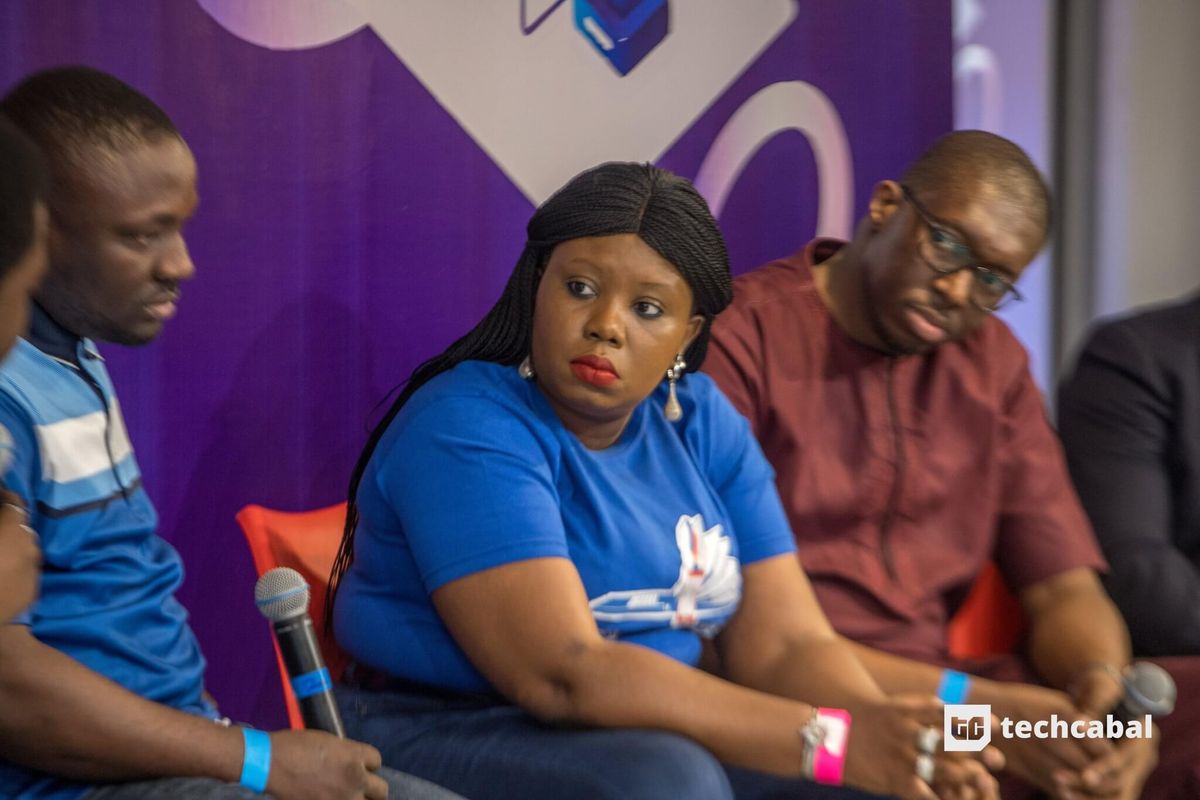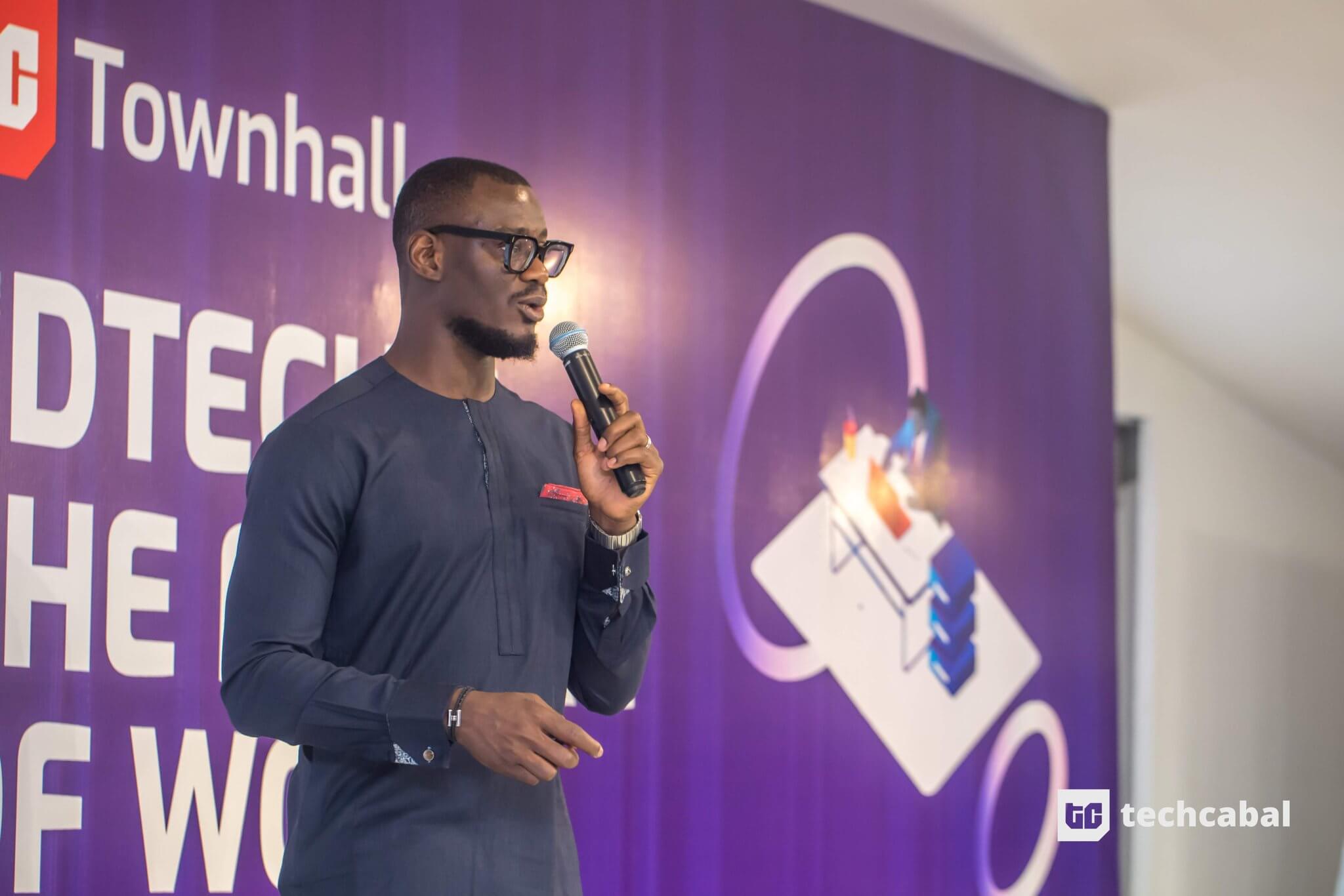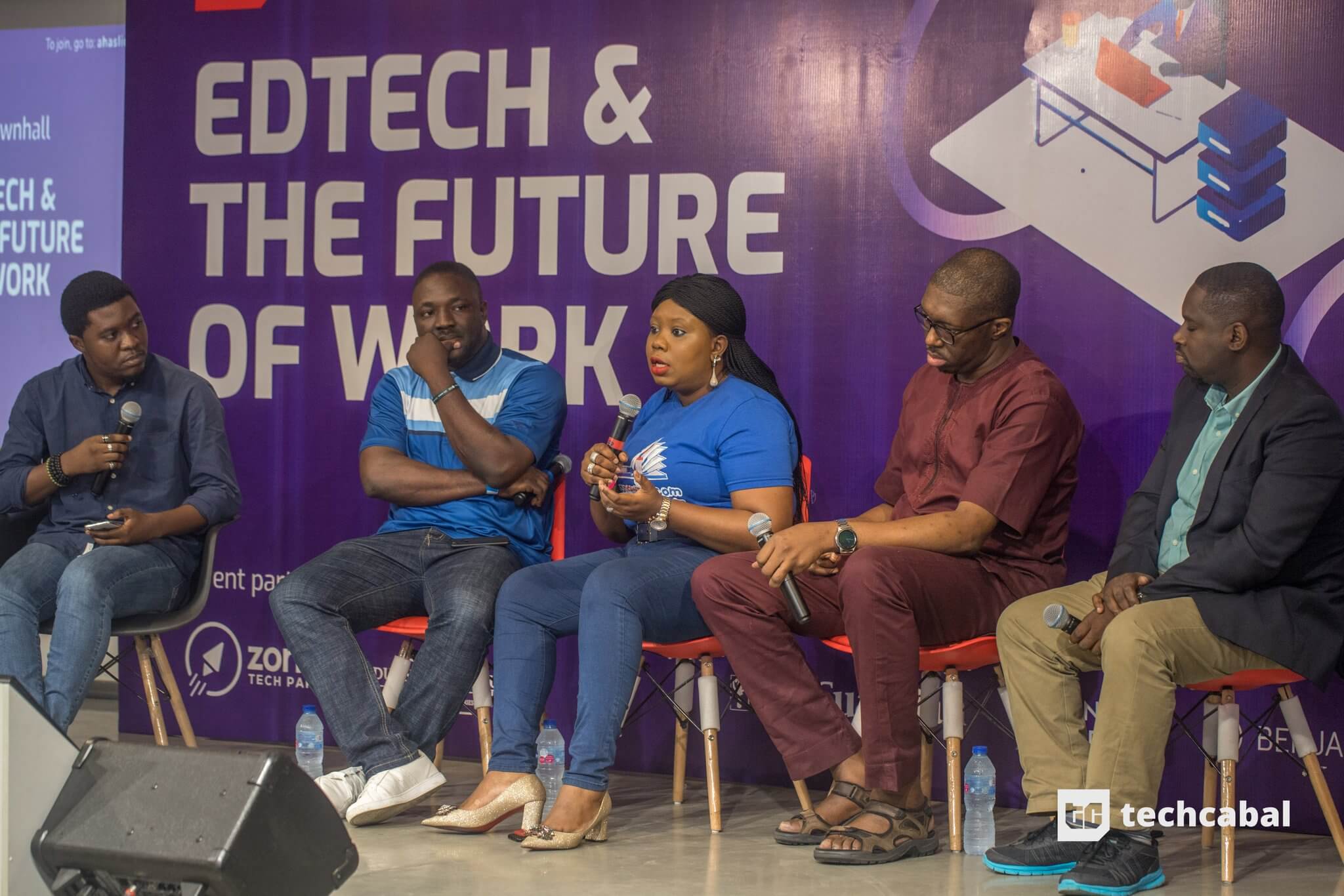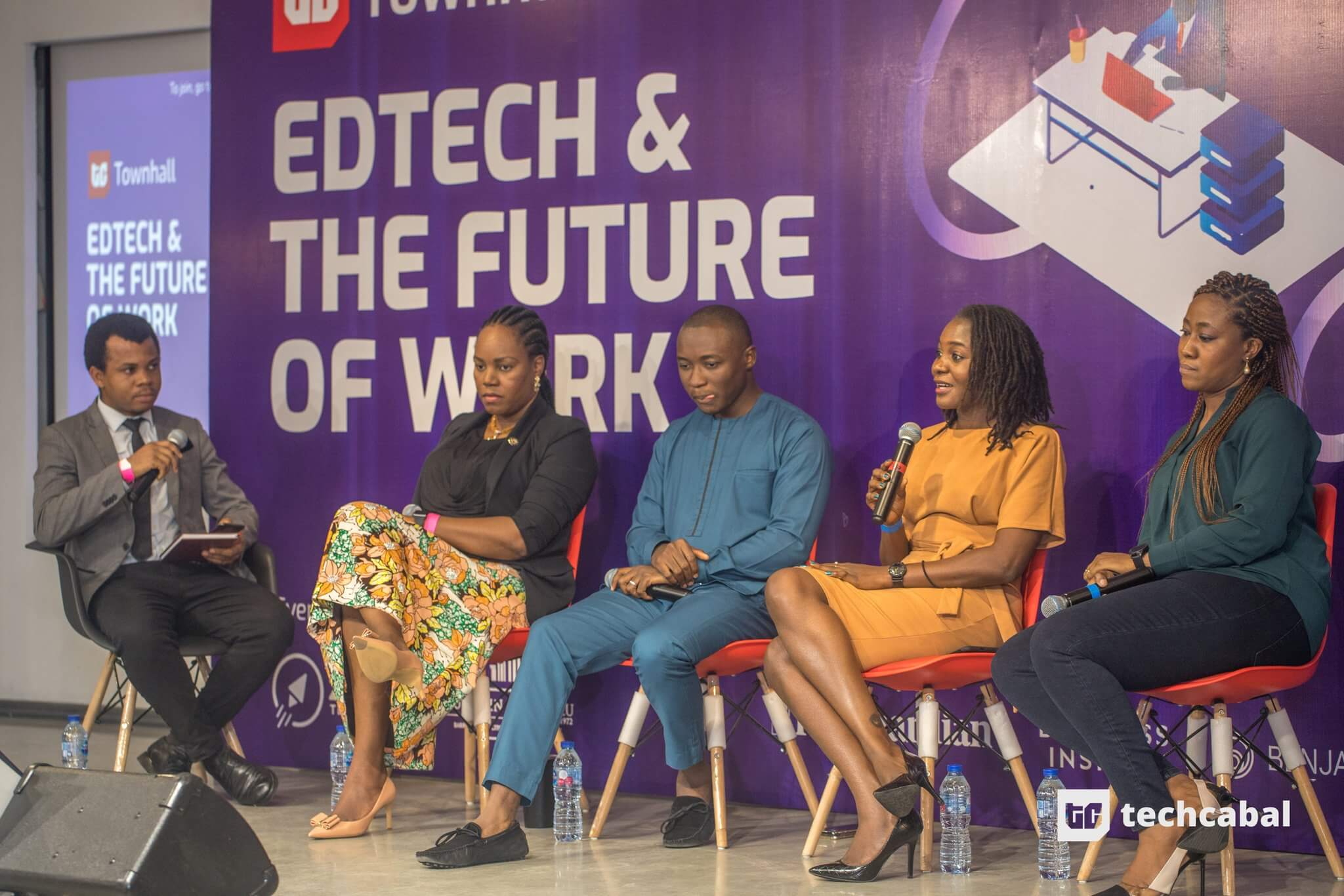TC Townhall: What's needed for edtech to be successful in Africa?
What's needed for edtech to be successful in Africa?

The fifth edition of TechCabal's Townhall (TC Townhall) series was held on November 29, 2019. It brought together tech leaders, educators, policymakers and investors to explore the theme: Edtech and the Future of Work.
TC Townhalls are designed to convene stakeholders in key sectors of the techosystem, to not only discuss the challenges and opportunities in the sector but also to highlight actionable solutions. Previous editions had explored notable sectors such as fintech, renewable energy, and mobility.
This edition on Edtech and the Future of Work, which was held at the Zone Tech Park, addressed the impact of technology on education and the way it is preparing African youths for the fourth industrial revolution.
Kicked-off at 9:30 AM with a welcome address from Chidi Uguru, Head of Business Development at Big Cabal media—the parent company of TC, the event featured four lightning talks, a keynote address and three thematic panel sessions: The State of Edtech in Africa, Preparing African Youths and Employer for Future Jobs, and an Investor Session.
There were also product showcases from four edtech startups, namely, STEM METS, Imisi 3D, FlexiSAF and ScholarX. The highlight of the Edtech and Future of Work Townhall was the startup-investor matchmaking—an invite-only networking session, where selected edtech startups and investors have a tête-à-tête—that happened after the main townhall.
For edtech to succeed in Africa, we need...?
While the overall aim of the townhall is to identify and proffer solutions to the challenges of edtech in Africa, each of the lightning talk tried to answer the question: For edtech to succeed in Africa, we need...? The speakers, from their point of view, identified the prerequisites for edtech startups and solutions to scale—in impact and profitability—in Africa.
During her talk, Folawe Omikunle, Managing Director of Teach for Nigeria, identified three things needed for edtech to succeed in Africa:
- Edtech startups must understand the problem they are solving
- They must be willing to go all the way. Folawe said: "It's a long haul. With education, you have to be willing to stay in for the long haul".
- Edtech solutions must be co-created. "There is need deep relationship among stakeholders in the education process, edtech startup must liaise with the teachers, students and policymakers", Folawe said
Chika Nwobi, Founder of Decagon, reiterated similar thoughts in his lightning talk. He said: "Edtech will be successful, if we have the four P's—purpose, people, partnerships and profit".
The Executive Director of AfriLabs, Anna Ekeledo, introduced a solution expected improve edtech activities in Africa: The Edtech Hub. The Hub is a consortium established and funded by the Gates Foundation, World Bank and the United Kingdom's Department for International Development (DFID). It will generate, collect and increase evidence to inform the most appropriate and effective uses of technology to improve global learning.
Anna also emphasized the need for edtech innovation sandboxes. She said: "There is need for an enabling environment, within real world education and learning contexts, for innovators to be able to test, validate and adapt their edtech solutions".
The last lightning talk was delivered by an investor. Dayo Koleowo, Partner at Microtraction—an early-stage investor in Schoolable, a fintech startup providing access to affordable education finance. He emphasized the need for edtech startups to understand their unit of economics and which lever of their business would help them scale.

The Keynote Address
The CEO of Big Cabal Media, Tomiwa Aladekomo, delivered the keynote presentation and it was titled: Investing in Africa's Human Capital through Edtech.
He submitted that Africa's education system is dysfunctional: a lot of out-of-children (97.5 million) and those in school are not really learning (9 out of 10 children in school are not learning the minimum reading and maths skills). Consequently, African workforce lack the required skills for current jobs, as well as future jobs.
Extrapolating from the report of Injini, an edtech-focused incubation and seed investment programme, there is a growing interest in the sector (applications received increased from 107 in 2017 t0 805 in 2018) and investors are also paying attention—exemplified by the $3.1 million (N1.1 billion) seed funding raised by uLesson.
Tomiwa, however, identified low funding, access to market, limited digital infrastructure, and lack of edtech-focused incubators or investors as some of the key challenges facing African edtech startups. Therefore, he recommends that government should treat edtech as part of the education system, innovation sandbox for edtech startups and closer dialogue between edtechs and job providers.
Panel sessions: The future of education and edtech in Nigeria is dependent on the government
The three panel sessions were riveting. The first operator panel session, which centred on the state of edtech in Africa, had as panelists:

- Tunji Adegbesan, Founder, GidiMo;
- Tayo Olaniyan, Nigeria Adaptation Manager for Ubongo Kids;
- ‘Dimeji Falana, CEO/Co-founder, Edves;
- Toyosi Akerele-Ogunsiji, Founder and CEO of RiseLabs and Passnownow
The insights shared by the panelists shared were instructive. They advised edtech startups to measure the impact of their solutions so that they can engage policymakers, investors and other stakeholders with fact and figures.
Tayo said: "We monitor and measure the performance of students that have watch our content. And compared to the children that don't, they perform 20x better. These are data that can't be denied".
Edtech startups must also engage in strategic storytelling. "Tell your stories. Show people the impact of the problem you're solving", Toyosi said.
Also, edtech startups must understand their business model. Tunji said: "It is easy to scale if you know who your customers are. It is possible that the people using your solution might not be the ones paying for it".
When asked about the future of education, Toyosi decried the current disposition of government towards the sector. "Politicians needs to focus on the next generation and not the election", Toyosi said.
Edtech is only going to prosper to the extent that the entire Nigerian system begins to rethink the process of investing in education. Ghana invests 20% of its national budget in education and Kenya gives 27%, but Nigeria invests only about 7% in education.
The second operator panel session, which looked at preparing African youths and employers for future jobs, had as panelists:
- Seyi Ladejobi, Head of Employability at Lagos State Employment Trust Fund (LSETF)
- Tolu Agunbiade, General Manager-Nigeria, ALX
- Femi Taiwo, ED, LEAP Africa
- Solape Hammond, Lagos State Acting Commissioner for Wealth Creation
The panelists submitted that soft skills, such as emotional intelligence, critical thinking, leadership and entrepreneurial skill, would be the edge of the human workforce in the era ubiquitous automation. Basic ICT skill has also become a necessity because humans will be working with more machines in the future.
Solape also advised Edtech startups and other techpreneurs to take advantage of the LSETF's Lagos Innovate programme, which provide investment, training and co-working spaces.
Tolu also mentioned that the ALX Launchpad programme, which will equip young people with the core employability skills, will be launched in July 2020.

The last panel was the "money panel". The investors panel had as panelists:
- Kola Aina, Chairman of Edu Platforms, and Founder of Venture Platforms
- Gossy Ukanwoke, Founder of Beni American University Platforms
- Bunmi Lawson, MD and CEO of EdFin Microfinance Bank
They submitted that the current education policy landscape is not changing. Therefore, edtech startups must find a way to innovate around it. The policy makes it compulsory for edtech startups like Beni American University, which offers online learning, to have typewriters, data centres and certain land mass for an online university.
More disturbing is the fixation on the nomenclature, which forbids Beni American University from calling themselves an online university but an e-learning platform or distance learning programme.
Gossy said: "Individually, the policymakers understand the possibilities with edtech. But when they come together to formulate and implement policies, the go with the archaic tradition. To them, the requirements is a way of ensuring quality".
According to Kola, if there's a level below zero, that's where educational technology is in Nigeria. He said: "This is why we are very excited to see entrepreneurs of Sim Shagaya calibre venture into the space and raise money to tackle the education problem. But really, there is limited digital infrastructure".
When asked what's needed to jumpstart the edtech sector, Kola and Gossy answered accessible and affordable internet connectivity and reliable power supply.







Comments ()